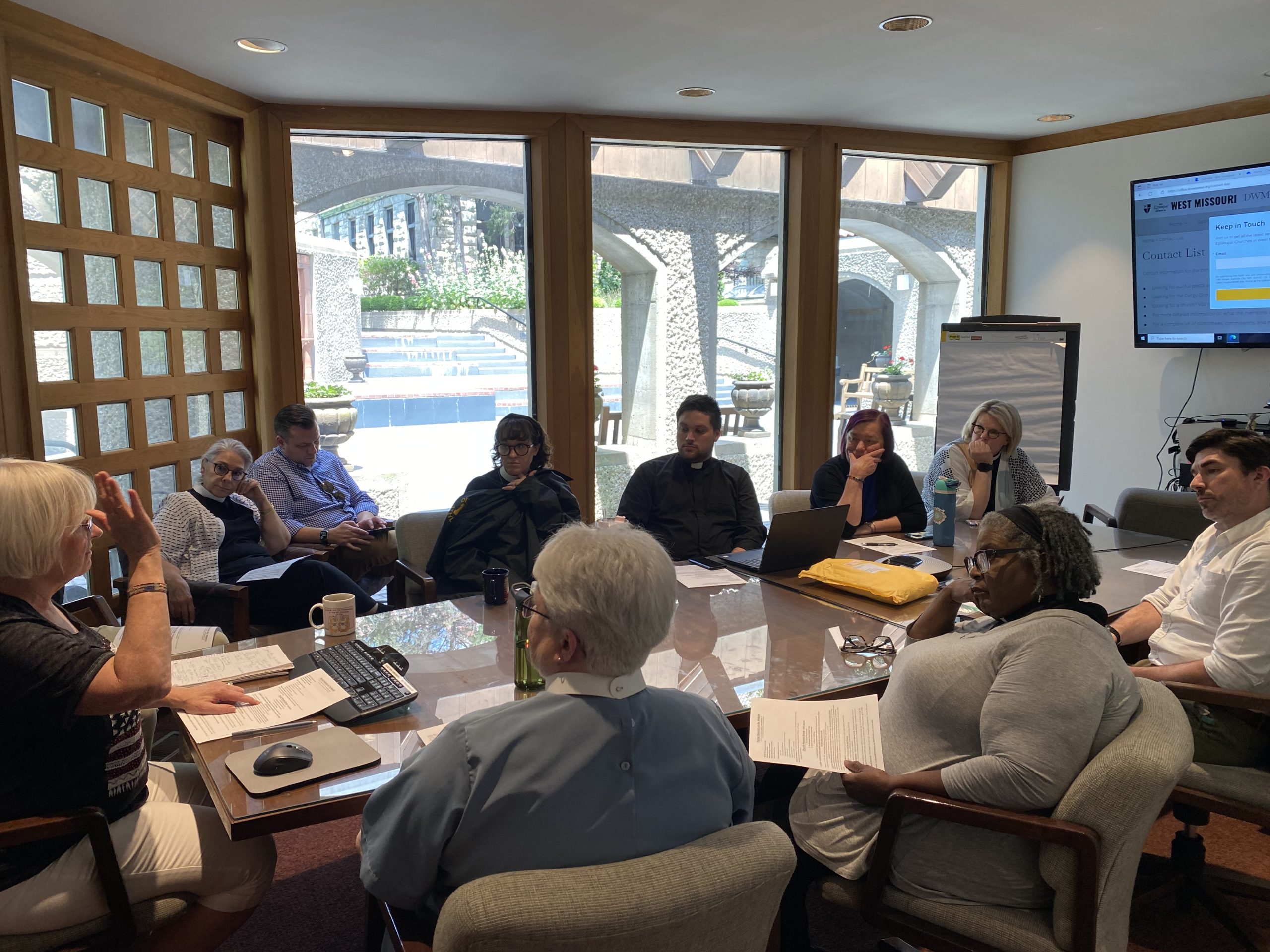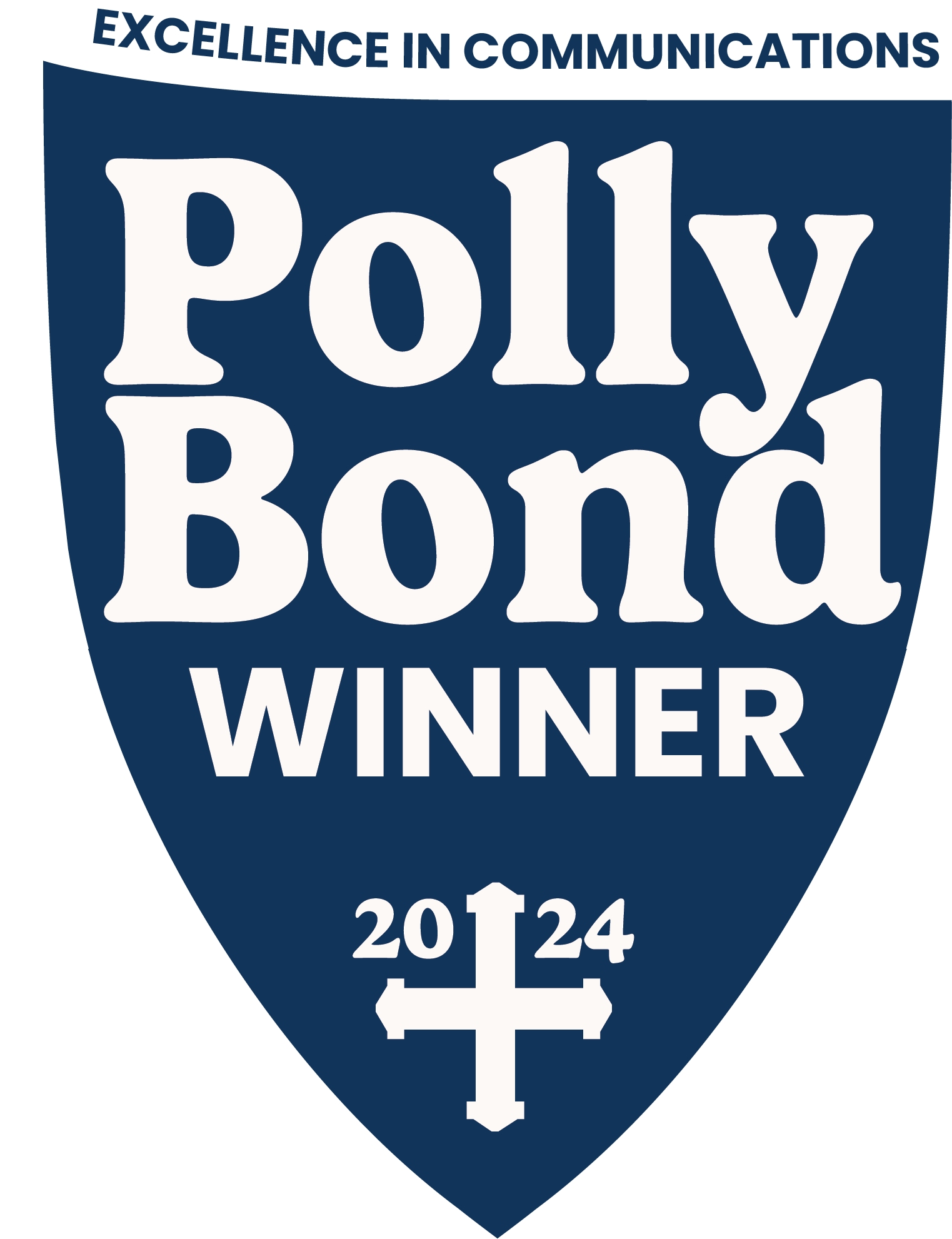About
The Commission on Ministry (COM) exists in compliance with Title III, Canon 2 of the Canons and Constitutions as an advisory role to the bishop in the implementation of Title III. Our primary responsibilities are to encourage and enable present and future opportunities for the ministry of all the baptized, in the design and oversight of recruitment, discernment, formation for ministry and assisting in assessing individuals’ readiness for ministry.
Our Subcommittees have been formed to cover these areas articulated in specific Canons under Title III. These four subcommittees are Discernment, Ordination Process, Licensed Ministry, and Clergy Continuing Education, Orientation and Mentoring. Membership in these subcommittees is not limited to members of the Commission. The chairs of the subcommittees will be ex-officio members of the Commission, if not already elected or appointed members.

Ordination Process
The ordination process in The Diocese of West Missouri consists of a series of stages that are mostly prescribed by the Title III canons of The Episcopal Church. The canon governing the ordination of deacons is Canon 6, while the canon governing the ordination of priests is Canon 8. The canons may be found here.
Individual Discernment
Aspirant meets with a spiritual director, sponsoring priest, and others for initial conversation. The rector/priest then agrees to form Congregational Discernment Committee (CDC).
Congregational Discernment
Aspirant meets with Congregational Discernment Committee (CDC) for approximately six months to discern call for further ministry. The CDC provides a recommendation to vestry. The rector and vestry may nominate the aspirant who, upon acceptance of the nomination, becomes a nominee.
Nomination
- The nominee completes medical exam, psychological evaluation, and background check
- Nominee meets with the bishop
- The nominee is invited to a Next Steps Retreat with the COM, Standing Committee, and bishop
- COM and Bishop give approval for further discernment. A COM mentor and liaison are assigned
Diocesan Discernment
- Nominee explores ministry opportunities during a second congregational experience for about six months; meets with new congregation DC to refine focus on further ministry direction
- New congregation DC recommendation to COM
- Steps to Postulancy Nominee is invited to a second Next Steps Retreat with the COM, Standing Committee, and Bishop
- COM recommendation to Bishop
- Bishop approves postulancy
Postulancy
- Formal seminary formation begins. Students who have not completed a bachelor’s degree are referred to the bishop and the vocations missioner.
- Postulants for the diaconate will attend BKSM.
-
Residential Seminaries (Master of Divinity)
- Berkley Divinity School at Yale. New Haven, CT. (Residential)
- Bexley-Seabury. Chicago, IL. (Hybrid)
- Church Divinity School of the Pacific. Berkley, CA. (Hybrid)
- Episcopal Theological Seminary of the Southwest. Austin, TX (Residential)
- The School of Theology, University of the South. Sewanee, TN (Residential)
- Virginia Theological Seminary. Alexandria, VA (Residential)
-
Regional Seminary Option (Certificates in Presbyteral, Diaconal, or Anglican Studies)
- The Bishop Kemper School For Ministry (BKSM)
- For deacon Postulants, BKSM offers a two-year curriculum. Details of the curriculum are on the BKSM website.
- For priest Postulants who expect to remain in Missouri, Kansas, Iowa, or Nebraska, and who expect their priestly ministries to be either part-time or non-stipendiary. BKSM is designed specifically for students who will remain in the diocese while continuing to work at secular employment. The BKSM curriculum for future priests consists of 30 courses taken over three years. Details of the curriculum are on the BKSM website.
- The Bishop Kemper School For Ministry (BKSM)
- The postulant continues with seminary education and formation.
- Discerner applies for candidacy.
Candidacy Interview
- The postulant meets with the Standing Committee
- COM and Standing Committee make a recommendation to the bishop
- The bishop approves candidacy
Candidacy
- Candidate completes seminary and sits for canonical exams
- Diocesan Board of Examining Chaplains makes a report to the COM and bishop
Final Recommendation
- COM recommendation to Bishop
- Candidate meets with the Standing Committee for consent to ordination
- Bishop consents to ordination
Ordination
- Diaconal ordination – vocational diaconate or transitional diaconate
- For those called to be a priest, priestly ordination no fewer than six months later
Additional Information Prior to Ordination
- All candidates for ordination will complete Clinical Pastoral Education (CPE)
- All candidates will participate in field placement/internship
Resources & Templates
- Discernment Handbook
- Background Information Release Form
- Nomination Template
- Nomination Acceptance Template
- Candidacy Application Template
- Candidacy Support Template
- Deacon (Vocational) Application for Ordination Template
- Deacon (Transitional) Application for Ordination Template
- Priest Application for Ordination Template
- Ordination Support Template
Leadership

Ann Rainey

The Rev. Canon Anne Meredith Kyle
Members
- Ms. Kathy Alexander
- Dr. Vincent Clark
- The Rev. John Coil
- The Rev. Timothy Coppinger
- The Rev. Larry Ehren
- Mr. Gary Gee
- The Rev. Lynda Hurt
- The Rev. Adam James
- The Rev. Rita Kendagor
- The Very Rev. Karen Mann
- The Rev. Katherine Mansfield
- Ms. Shannon Morgan
- The Very Rev. Joe Pierjok
- Mr. Raja Reed
- Mrs. Paula Shepard
- The Rev. Canon Galen Snodgrass

